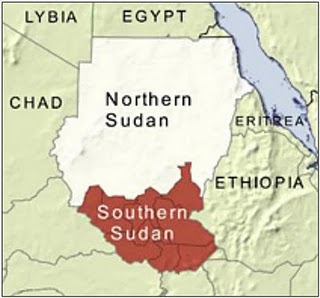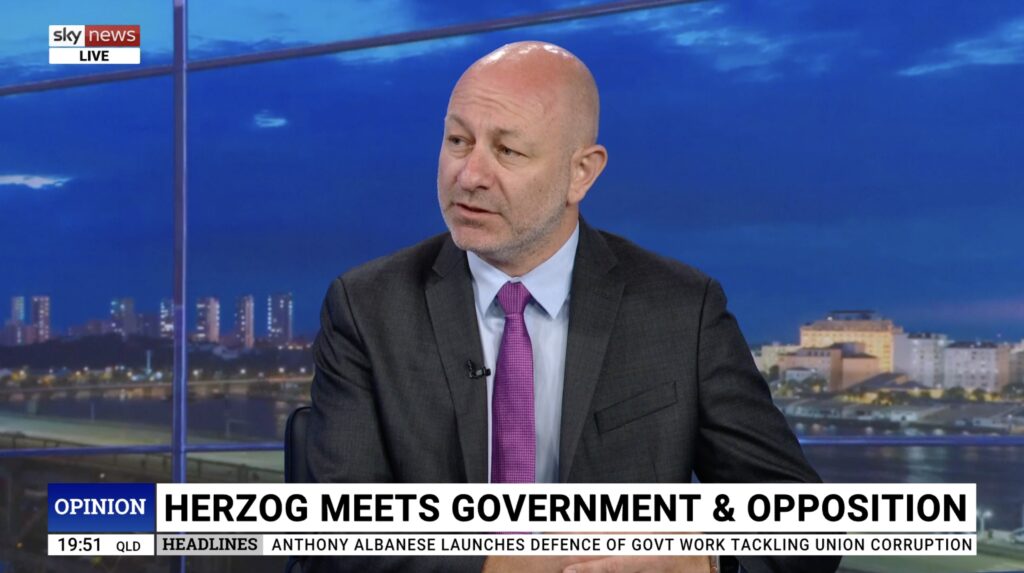UPDATES
South Sudan – Implications for Israel and Palestinians?
July 19, 2011 | Allon Lee

Amid the cheers over the birth of the new nation state of the Republic of South Sudan, some commentators are noting the largely overlooked significance of what has just occurred, not least for an Israeli-Palestinian peace process eventually leading to a two state solution.
The American Jewish Committee’s Ed Rettig writes that the challenges confronting the government and people of South Sudan make Gaza and the West Bank seem like the French Riviera, yet Palestinian intransigence prevents the establishment of a Palestinian state of the type the South Sudanese were willing to accept.
The odds against independence for South Sudan were much greater than those facing the Palestinians. The barbarity with which the Sudanese regime repressed opponents got President Omar al-Bashir indicted at the International Criminal Court for crimes against humanity. South Sudan paid an exorbitant price for independence: one and half to two million people dead in decades of fighting against the North.
The new nation faces daunting development challenges. Illiteracy is rampant, running at about 75%. Most of its people live in stark poverty on less than a dollar a day. Politically, its borders are not yet fully delineated. Despite a ruling by the Permanent Court of Arbitration in The Hague, the division of the Abyei region remains contested. The Nuba people continue to oppose the North, which responds with military violence. The country is flooded with refugees, some 300,000 repatriates from the North and another 270,000 internally displaced persons. And internal security is threatened by tribal strife over matters like cattle disputes and longstanding blood feuds. Reuters reports a UN estimate that in the current year, 2,300 people lost their lives in such violence.
This should provide a reality check for Palestinians and their supporters who obsess about a “humanitarian crisis” in Palestine that requires flotillas and “flytillas.” Compared with South Sudan, Palestine is the French Riviera. This raises serious questions about the moral justification for the Palestinians to take extreme stands that make compromise so difficult, while they continue to act as a bottomless drain on the ultimately limited resources the developed world can provide in aid.
The ongoing conflict with Israel is the greatest impediment to weaning the Palestinians off international financial support. Their intransigence diverts funds that would be better spent on much poorer populations that, unfortunately, have less political clout.
Meanwhile, in a succinct piece, analyst Barry Rubin asks some important questions regarding the country’s future and the reasons for its establishment.
Rubin points out that most of South Sudan’s population are Christians – while North Sudan is largely Muslim – and came “into existence because it is Christian, a sort of parallel to Israel”.
He asks whether South Sudan’s future will be as “a purely African-oriented state or will it play some part in the Middle East?” The difference is not insignificant, as Rubin’s first question makes clear:
Will the rest of the Middle East ignore south Sudan or will it become a target in future for jihad and hatred, as an illegitimate entity allegedly created by Western imperialism that must be destroyed?
And his second question:
… whether Christians elsewhere will show any interest in the new country and try to help it survive and prosper.
In political terms, it seems that Western Christians spend much of their time either supporting or bashing Israel. The beleaguered Christians of Egypt, the Gaza Strip, Iraq, Lebanon, Sudan, and Pakistan are ignored.
Now that there’s what is in effect a state created as a safe haven for Christians will that change any attitudes?
Finally, Rubin makes the telling parallel between how the Palestinian Authority – Israel’s nominal partner for peace – reacted to the establishment of South Sudan.
By the way, the Palestinian Authority (PA) is totally against the two-state solution in Sudan, greeting the occasion with a particularly antisemitic, anti-American cartoon. Back in 2009, when the Sudanese regime was committing mass murder-in real life, not like the false accusations made against Israel-PA leader Mahmoud Abbas urged all Arabs and Muslims to give complete support to the Khartoum government.
But the PA isn’t at all being inconsistent since basically it is also against a two-state solution of the Israel-Palestinian issue as well.
For more on the PA cartoon Rubin mentions, check out AIJAC’s Sharyn Mittelman’s blog post.
Tags: Africa





